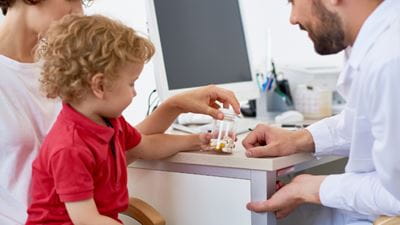All Search Results
-
How to Prepare for a Hurricane When You Have a Child With a Chronic Illness
Hurricane Irma’s visit to Central Florida last year reminded us of the many ways tropical storms and hurricanes can wreak havoc on our everyday lives. These weather events become especially critical when there’s a family member with serious medical needs.
-
Is Sunscreen Safe for Babies?
Few things can bring a smile to your face as quickly as a baby in a bathing suit. With chunky leg rolls exposed and a huge summertime grin on their faces, babies lounging at the beach or the pool are just the cutest. But as you dress your little ones in their beachwear, you may wonder whether you should slather on sunscreen before going out in the sun.
-
What is a Level One Trauma Center and why does it matter to your family?
Level One Trauma Center criteria vary somewhat from state to state, but commonly include these elements, according to the American Trauma Society:
-
What to Know About Sickle Cell Disease
Sickle cell disease is the name of an inherited problem with red blood cells. Most people have red blood cells that are disc-shaped and move easily through blood vessels, but those with sickle cell have red blood cells that are C-shaped (like the farm tool called a sickle). The unusual shape of red blood cells, as well as their tendency to harden and become sticky as they travel through blood vessels, causes a variety of problems.
-
Teens are juuling at school and parents are clueless about it
Have you heard your teen mention “juuling” or something called a “Juul”? Perhaps you thought it was some new slang term your
-
8 things you probably don't know about children with autism
As we highlight Autism Awareness Month this April, we want to bring increased understanding to the top 8 myths still surrounding an autism diagnosis.
-
What Every Parent Should Know About Learning Disabilities
The term “learning disability” is thrown around pretty loosely these days, yet it’s hard for most of us to come up with an accurate definition of what is actually meant by those words. It’s important for parents to have some idea, though, of what learning disabilities are and what can be done about them. This knowledge will equip you to recognize a problem and get the appropriate help in a timely manner if your child does suffer from a learning disability.
-
Teaching Your Child to Swallow Pills
It seems like a no-brainer – just pop the pill in your mouth and swallow. It’s easy to forget, though, that swallowing a pill is something that must be learned. It may feel normal and natural to us grown-ups, but it’s not normal or natural for kids. For children who need to take medications, either for an unexpected illness or a long-term condition, this seemingly small issue can produce a lot of anxiety, making it a big issue. If you’ve ever sat on your kitchen floor with a kid screaming “I can’t do it!”, you know what I mean.

-
Even After School Starts, Don’t Forget Sun Safety!
This article was written in conjunction with Robert Hedrick, MD, pediatric medical resident at Orlando Health Arnold Palmer Hospital for Children.
-
James E. Toledano, MD
James Toledano, Jr., MD, FAAOS, is a board-certified orthopedic surgeon. He serves as chief of pediatric orthopedic surgery at Orlando Health Arnold Palmer Hospital for Children Center for Orthopedics. He cares for children with musculoskeletal conditions, including scoliosis, spina bifida, congenital deformities and more.






